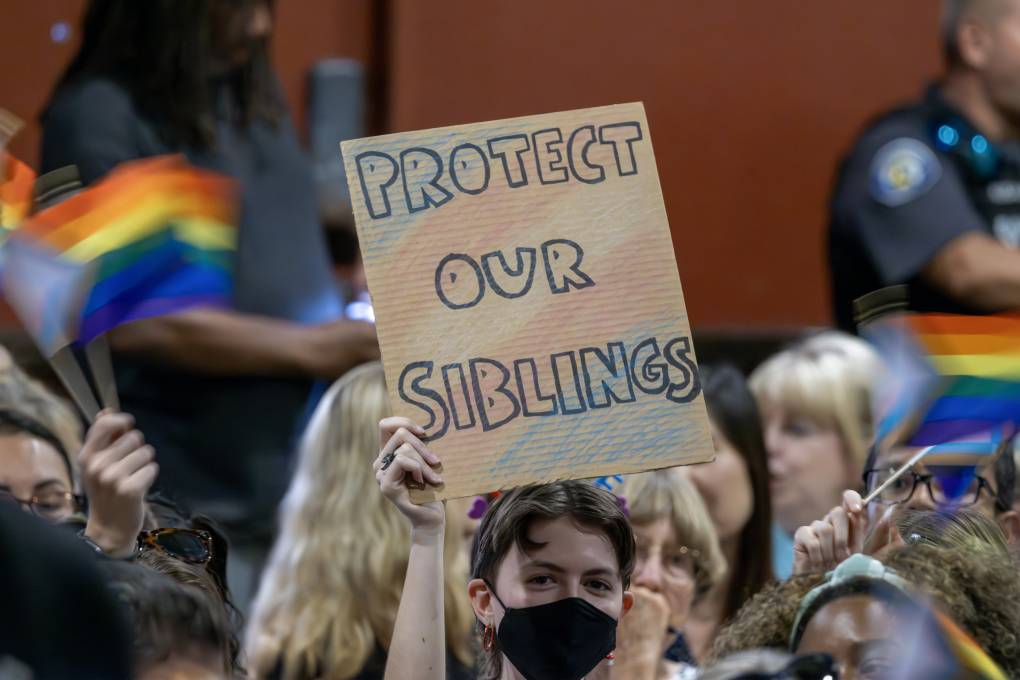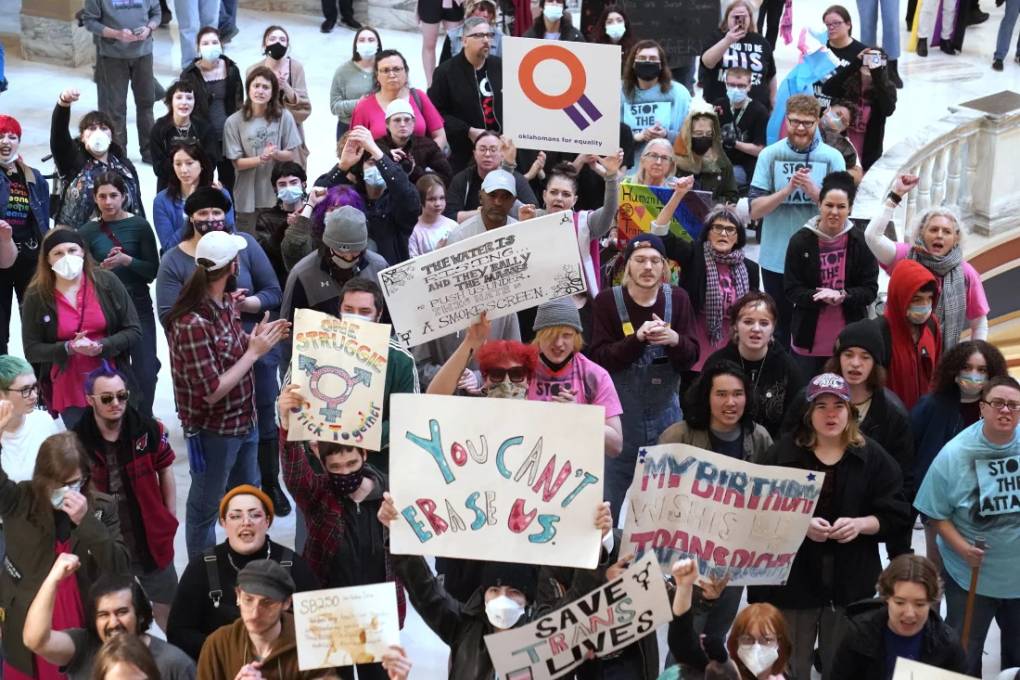What does the bill do?
According to the American Civil Liberties Union of Southern California, the California Education Code gives K–12 public school students the right to be out — that is, “open about your identity and to be yourself at school” — and to be referred to by their preferred pronouns.
The new law, Assembly Bill 1955, takes an extra step, prohibiting K–12 school officials from putting a rule in place that would “require an employee or a contractor to disclose any information related to a pupil’s sexual orientation, gender identity, or gender expression to any other person” without the student’s consent.
“Teachers can still talk to their parents,” Gov. Gavin Newsom said at a December press conference. “What [a school] can’t do is fire a teacher for not being a snitch. I don’t think teachers should be gender police.”
The law bans any of the following educational bodies in California from making or enacting these policies:
- School districts.
- County offices of education.
- Charter schools.
- State special schools.
- Members of the governing board or body of those educational entities.
This means that this bill does not apply to private schools.
The law provides a layer of protection that organizers like Lala-Chávez say trans students need, especially in the face of the incoming administration. President-elect Donald Trump has already promised to remove Medicare and Medicaid funding from hospitals that provide gender transition treatment to minors, and Project 2025 — the detailed policy agenda for the next Republican presidency authored and supported by Trump allies, former and current Trump staffers and Vice President-elect JD Vance — proposes rolling back regulations that ban discrimination based on gender identity, sexual orientation and trans status.
Since the results of the elections, Gov. Gavin Newsom and state Attorney General Rob Bonta have positioned themselves as legal opponents to Donald Trump’s incoming presidency, to “protect California values.” “Right now, I’d say we are to some degree grateful that we are in California,” said Lala-Chávez. “I’m hoping that withholds a lot of the challenges that we’re going to be facing in the next couple of years.”
The ACLU SoCal has a thorough guide about your rights as a public school student, including if you have the right to start an LGBTQ+ advocacy group in school or how you can officially change your pronouns in class.
Why is this law coming into effect?
Gov. Gavin Newsom signed Assembly Bill 1955 at a time when anti-trans legislation continues to rise around the United States. Despite its reputation as being friendlier to LGBTQ+ communities than other states, California has not been immune to such measures, with cities like Chino enacting name-change policies or a pending lawsuit at San José State University over trans women participating in sports.
A 2024 study by the Trevor Project found that in following years, where some states passed anti-trans laws aimed at minors, suicides increased as much as 72% among transgender and gender nonconforming teenagers.
What if I think my rights are being violated?
In addition to prohibiting schools from requiring teachers to notify parents of their child’s gender identity or name preferences, the bill will also require schools to develop and update school resources for LGBTQ+ students — such as ways to contact national and local queer organizations, trained counselors or social workers.
However, if a student still thinks that their rights are potentially being violated — for example, if they feel they are at risk of being outed against their will — Lala-Chávez said students should notify school leadership. They also suggested that advocacy organizations like Equality California may be able to help in such situations, if a student reaches out directly.
Young people also “definitely have every right and opportunity” to contact their elected officials, Lala-Chávez added. KQED has a step-by-step guide on how to contact your representative.
Students can also submit concerns and complaints to the California State Education Department — which can be anonymous.
What should I do if I still feel unsafe? Where can I find support?
The bill bans schools from forcing teachers to notify parents if their child identifies as transgender. But teachers — who sometimes can be safe confidants for LGBTQ+ students if their relatives are not — can still provide support and resources to trans students. Lala-Chávez said it was important for students to have strong relationships with adults and educators that they feel comfortable with, especially if the students feel like they are at risk at home. Such adults could include a counselor or a trusted teacher.
KQED also has a guide for trans people on how to prepare for the upcoming administration, which includes resources, organizations and hotlines they can reach out to. When reaching out to one of these organizations by phone or online, make sure you are in a private part of your house — or someone outside, where you are physically safe.
In some circumstances — especially when it comes to physical safety — young people may need to look up shelters and mental health clinics and be familiar with their rights in these spaces. Lala-Chávez said if you are feeling physically unsafe, some young people may consider calling Child Protective Services or the National Runaway Safeline.



